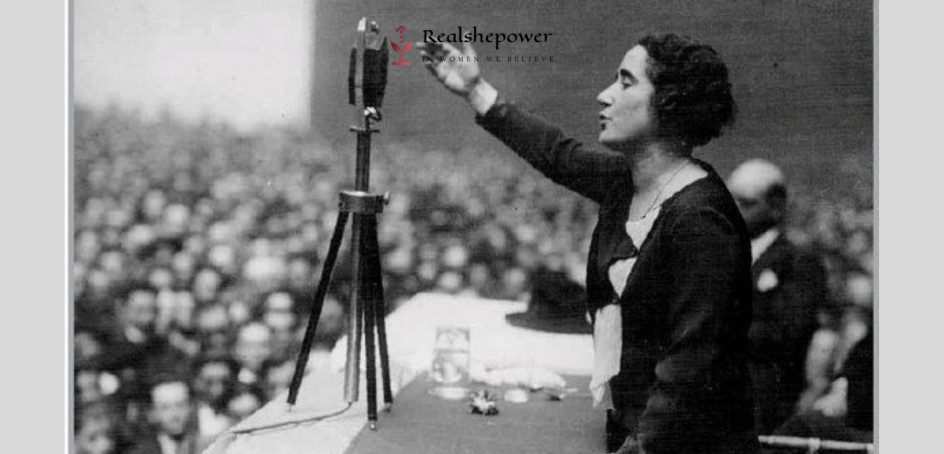Clara Campoamor Rodríguez: a pioneering voice for women’s rights


| Summary: Clara Campoamor Rodríguez was noted for bringing feminism to the social, economic, and political spheres of Spain. An outspoken woman who aided the passage of the feminine vote (suffrage) bill. Despite her major relevance, there are few articles about her on the internet—fortunately, that’s starting to change. |
Clara Campoamor Rodríguez was born in Spain in 1888, in a family that had progressive ideals. In 1898, when Spain lost all of its colonial empires, her father died and her single mother had to take care of her. Economic instability following the end of colonialism made it difficult for Clara, when she was 13, to continue going to school. She started working with her mother at the family’s textile factory.
Clara Campoamor was raised in a time where women were still being treated differently. She did not enjoy the same rights as males did. She is quoted as saying “we must struggle to achieve equality on both sexes! I want to be able to vote for all who govern me. […] Women are just as competent and just as intelligent.”
“We must struggle to achieve equality on both sexes! I want to be able to vote for all who govern me. […] Women are just as competent and just as intelligent”
Clara Campoamor
Clara was credited for initiating the women’s suffrage discussion in Spain in 1931 when she advocated for voting rights. Margarita Nelken, Victoria Kent, and Campoamor were the only three women in the chamber at the time.
Renowned for her, “one of a kind” speeches in the Spanish Chamber of Deputies; Campoamor argued for women’s vote right. She claimed that women deserved it because “their spirit (that) has tortured (themselves) seeing today in the process of denying the original capacity of these women.”
The One Of A Kind Speech
Campoamor in her historic speech countered with both the opposition on the right and from sectors of the left. On one hand, there were conservatives who thought women were not qualified to vote. On the other hand, progressive parties argued for electoral reasons. They were worried that women would vote to the right if given a chance.
“I think it is not the time to give the vote to the Spanish woman” argued Kent, attending electoral ends. She advocated for a postponement in its concession. “If Spanish women were all workers, if Spanish women had already passed a university period and were liberated in their conscience, I would stand today in front of the whole Chamber to ask for the female vote,” she said. Her speech was interrupted on several occasions by applause.
Then came the turn of Campoamor. She began with a brilliant intervention: “Ladies and gentlemen, far from censuring or attacking the statements of my colleague, Miss Kent, I understand, on the contrary, the torture of their spirit having seen today in the process of denying the initial capacity of women”. Her speech was one of a kind loaded with questions such as, “Do not they suffer the consequences of legislation?, Do not they pay the taxes to support the state in the same way as men do?”
Campoamor made a thrilling impact with her hard facts and statistical data. One such fact she presented was that “the decrease in illiteracy is faster in women than in men”.
The Result
With determination and perseverance, Campoamor convinced the ever-suspicious Congress to give Spanish women the right to vote. She finished her work, not with one, but two historic legislations. The first Divorce Law and the second, Presidential agreement for female suffrage.
In 1933 the first elections with universal vote took place in Spain because of one woman Clara Campoamor.
Related Article: Switzerland Didn’t Let Its Women Vote Until 1971!
